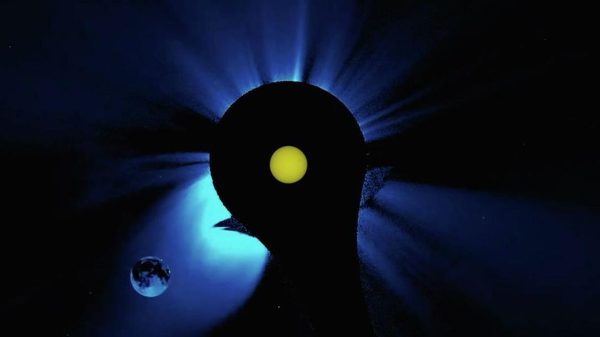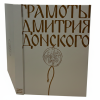It was a tale of two storms. The first consisted of the rain and thunder forecast for Bournemouth by the BBC weather app on the Saturday spring bank holiday. The second came when the first failed to materialise and a tourism manager in the town complained that visitors who stayed away could have come after all and enjoyed sunshine and blue skies.
This opportunity to rage at inaccurate forecasting, bash the BBC and highlight the grievances of small businesses did not go to waste. For the Sun, it was a “blunderstorm”. The Mail gave voice to furious social media users whose weekend had been ruined by “crap forecasting” and “total incompetence”. The Spectator even managed to use the row to take pot shots at climate-change predictions.
So, just another non-storm in a media teacup? Perhaps, yet the story highlights important questions about how technology is transforming both weather forecasting and our relationship with it. Is our ability to predict temperature, precipitation and wind speed improving? If so, how come forecasts can vary so widely depending on which smartphone apps we use? How long have human meteorologists got before supercomputers and artificial intelligence make them redundant? And when can we expect 100% accurate forecasts?
The foundation of modern weather forecasting involves gathering huge amounts of data on the state of the atmosphere and Earth’s surface, such as temperature, humidity and wind conditions. Gaps in the data are filled by extrapolating from available observations and past forecasts. Forecast models consisting of sets of equations governing physical and chemical processes use this as a starting point to calculate future conditions.
The impact of weather forecasting on human activities is hard to overstate. A 2011 study by the economist Jeffrey Lazo found that US GDP alone could vary by as much as $485bn (£366bn), depending on the weather. No wonder huge sums have been invested in improving predictive capabilities.
Meteorologists’ ability to predict atmospheric pressures three to 10 days ahead has improved at a rate of about one day per decade since 1981
The number of weather observations has risen dramatically, along with their quality. The Met Office, for example, is integrating wind-speed data gathered from transponders carried by large aircraft for navigation purposes into its models. Nasa’s GOES-16 satellite, declared operational in December, scans the Earth much more quickly and in greater resolution than previous satellites. In February, the UK completed a £10m upgrade of its rainfall radar network, allowing it to deliver five times more data than before.
All this data is fed into “petaflop” supercomputers capable of doing a thousand trillion calculations per second. These are needed because of the complexity of forecast models that approximate atmospheric processes. These models have become ever more complex as the science has advanced. The extra number-crunching firepower also enables “ensemble forecasting”, whereby forecast models are run multiple times using slightly different starting data to explore the probabilities of various outcomes.
This combination of more data, bigger computers and better algorithms has delivered impressive results. A study published in Nature in 2015 found the ability of meteorologists to predict atmospheric pressures three to 10 days ahead had been improving at a rate of about one day per decade since 1981. The Met Office says its four-day air pressure forecasts are now almost as accurate as its one-day forecasts were three decades ago.
The digital revolution has transformed how we get and use weather forecasts. Smartphone apps offer highly localised predictions and wider time frames – from what will happen in the next hour to a fortnight’s time. There are 8,000 apps with the word “weather” in their title for Android phones and 2,400 for iPhone users. With so much choice, how can non-experts work out which are most reliable?
Measuring forecasting accuracy is far from simple. What is most important – temperature, rain or wind conditions? Is average overall error most useful, or how often a prediction meets reality? “There are many, many ways to measure forecasting accuracy,” says Eric Floehr, founder of ForecastWatch, a US company that analyses the performance of weather providers. “Different forecasters perform better on different measures, longer or shorter timeframes or in certain geographical regions.”
A ForecastWatch report published last year compared the accuracy of six leading global forecast providers – AccuWeather, the Weather Channel, Weather Underground, Foreca, Intellicast and Dark Sky. The study covered one- to five-day forecasts for 1,145 locations, including 29 in the UK, during 2016.
AccuWeather’s predictions were best for temperature averages and highs, probability of precipitation and wind speed. The Weather Channel and Weather Underground came top for low temperature predictions. Dark Sky came last in all these categories.
In the UK, the BBC app has the most users, followed by the Met Office’s. In February, the BBC switched from using the Met Office to generate its app forecasts to MeteoGroup, a forecasting company owned by a US private equity group, on grounds, it says, of service quality and value for money.
Floehr provided the Observer with separate data on 12 forecasters covering 29 UK locations during 2017. In a composite measure of accuracy, the Weather Channel and Weather Underground came top, AccuWeather fifth, MeteoGroup (the BBC’s new provider) sixth and the BBC ninth (based on Met Office forecasts). On the correct prediction of precipitation, MeteoGroup came fourth overall and the BBC 10th of the 12.
Most regular weather app users will be familiar with the dilemma of trying to decide which to believe when predictions disagree. Given the improved accuracy of forecasting in recent years, why is there still such wide variation between different providers?
Some forecasters can access more observations than others. And they use different algorithms based on different forecast models with different levels of detail. Some apps simply churn out computer models’ predictions, others employ meteorologists to supervise and correct these, especially in unusual or extreme weather.
Which weather forecast should you believe?
Read more
“We have unique relationships with governments and companies that allow us to obtain the most relevant, real-time data, and use over 125 global, regional, national and local forecast models, says Jonathan Porter, a vice president at AccuWeather. “We’re constantly integrating new datasets and enhancing our algorithms. Our human meteorologists provide an extra layer of expertise when needed.”Even if the raw data coming out of algorithms used by different forecasters were identical, there could still be differences by the time their reached our screens. “One big difference between apps is what information they choose to show,” says Derrick Ryall, head of public weather service at the Met Office. “Some choose to simplify things while others put in a lot detail. A lot can come down to perception of accuracy.”
Another source of difference between apps is that, contrary to what some might expect, accuracy is not the sole consideration. In his 2012 book The Signal and the Noise, US statistician Nate Silver highlighted how plotting forecasters’ rain predictions against actual weather showed some consistently erred on the pessimistic side, especially at lower and higher probabilities of rain. “As a consumer you are going to be a lot more upset with a forecaster if you get rained on and forget your umbrella, than if you don’t have to use the umbrella you took,” says Floehr. “Because of this, some forecasters tend to over-forecast precipitation.”
Some leading forecasters are now moving away from this approach. Peter Neilley, a senior vice president at the Weather Company says it stopped having a “wet bias” around three years ago. “Rather than trying to make judgments ubiquitously about what’s important to people, we pay more attention to the probability of precipitation so people can make their own judgments,” he says.
The BBC app has faced widespread accusations of pessimism. It now includes hourly percentage chances of rain, which have caused confusion. “If you try to compare the weather symbol with just the probability of rain you won’t always see a direct correlation because other elements have an influence on that symbol,” said Nikki Berry, a senior meteorologist at MeteoGroup.
The BBC app sometimes displays a daily rain icon even when it predicts a less than 50% chance of rain during just one hour of that day. “We use the most significant or impactful weather on that day so people aren’t caught out,” says Berry. She adds that those making important decisions based on forecasts should look beyond weather icons for more detail on the BBC website weather page.
Japan breakthrough could improve weather forecasts and save lives
Read more
As in many other spheres, advanced computers are increasingly muscling in on roles previously done by meteorologists. As faster processors take over the grunt work, forecasters are shifting towards the more complex aspects of their profession. “There is very little human touch to the forecasts people receive on their smartphones,” says Floehr. “Meteorologists are increasingly focused on communicating forecasts, and helping people turn them into actionable intelligence. At some point in the next 10-20 years there will no longer be meteorologists in the forecast loop.”
However, those for whom the joy of complaining about the weather is only surpassed by a good moan about forecasters – whether in the media or not – can rest assured. Science tells us there is no such thing as a perfect weather forecast.
“To know everything about the weather you would need to model every single particle in the atmosphere and all interactions between them,” says Neilley. “That isn’t even theoretically possible, because the computer doing the modelling would generate heat and become part of the system, and then need modelling. Putting a thermometer in the air changes conditions a tiny bit. So no, weather forecasts will never be perfect.”
And the latest forecast is…
Smartphone data will soon be improving prediction accuracy
Satellites have been key in driving better predictions one day and more ahead, but are less useful over shorter time scales. Barometers provide air pressure readings that can help signal imminent changes.
Digital barometers have been included in some smartphones since 2011 to assist location tracking, and around 1bn smartphones can now measure air pressure. Prof Cliff Mass at the University of Washington has shown smartphone data can help improve the accuracy of short-term air pressure and rain forecasts. It could also help to predict wind changes.
“Cellphone data could help us better predict things like thunderstorm initiation, and have a big impact in places where we have less data than we’d like,” says Mass, who is also using machine learning to improve the quality of smartphone air-pressure data.
He is working with the Weather Company, which collects 250m pressure readings via its Weather Channel app.
Peter Neilley of the Weather Company said this data should be incorporated into its forecasts during 2019. Other forecasters, including Dark Sky, have also been experimenting with using smartphone air-pressure data.






















































Свежие комментарии